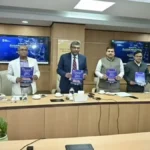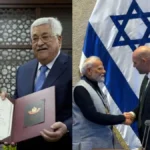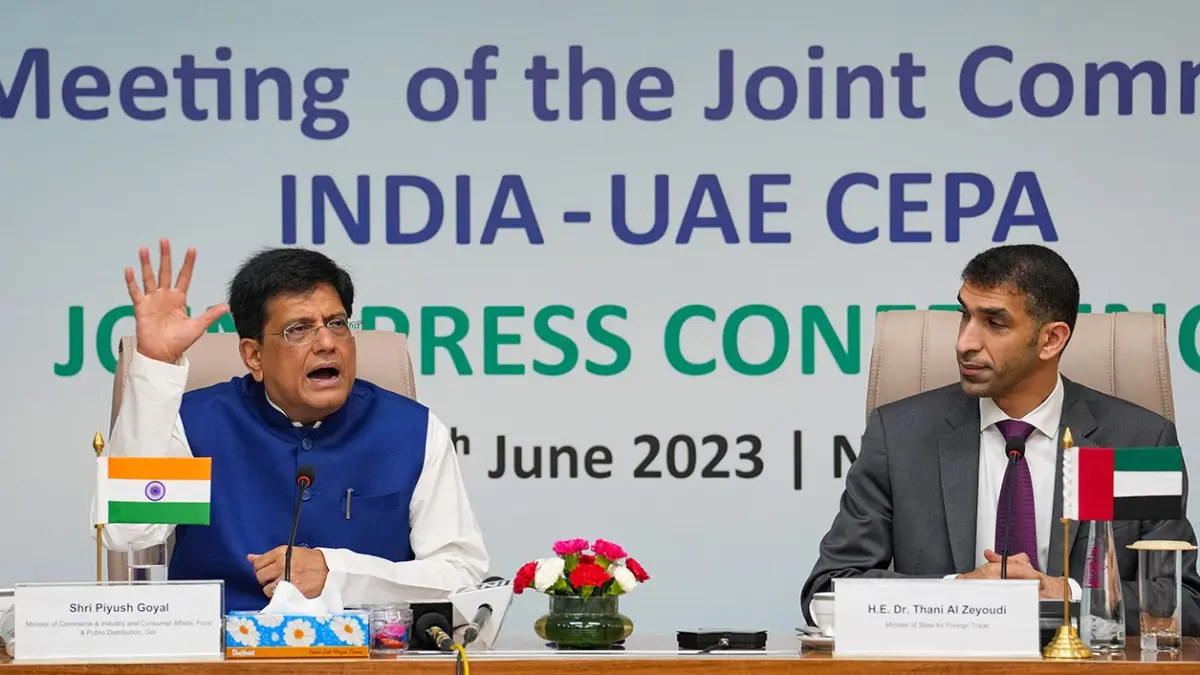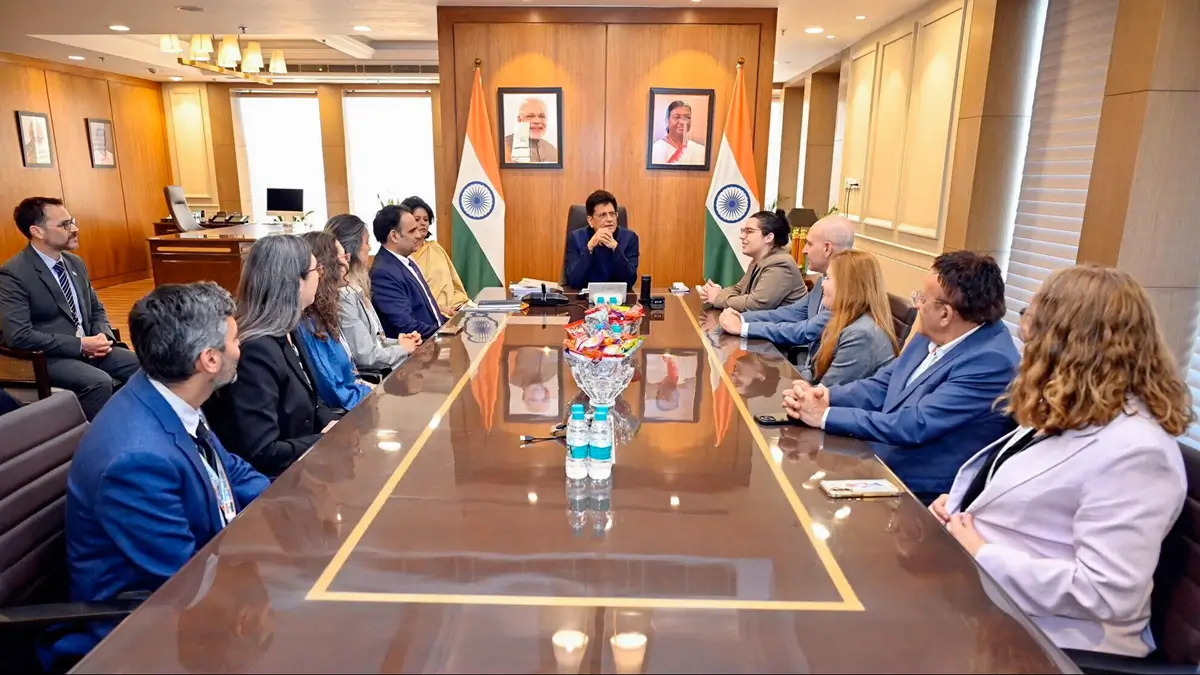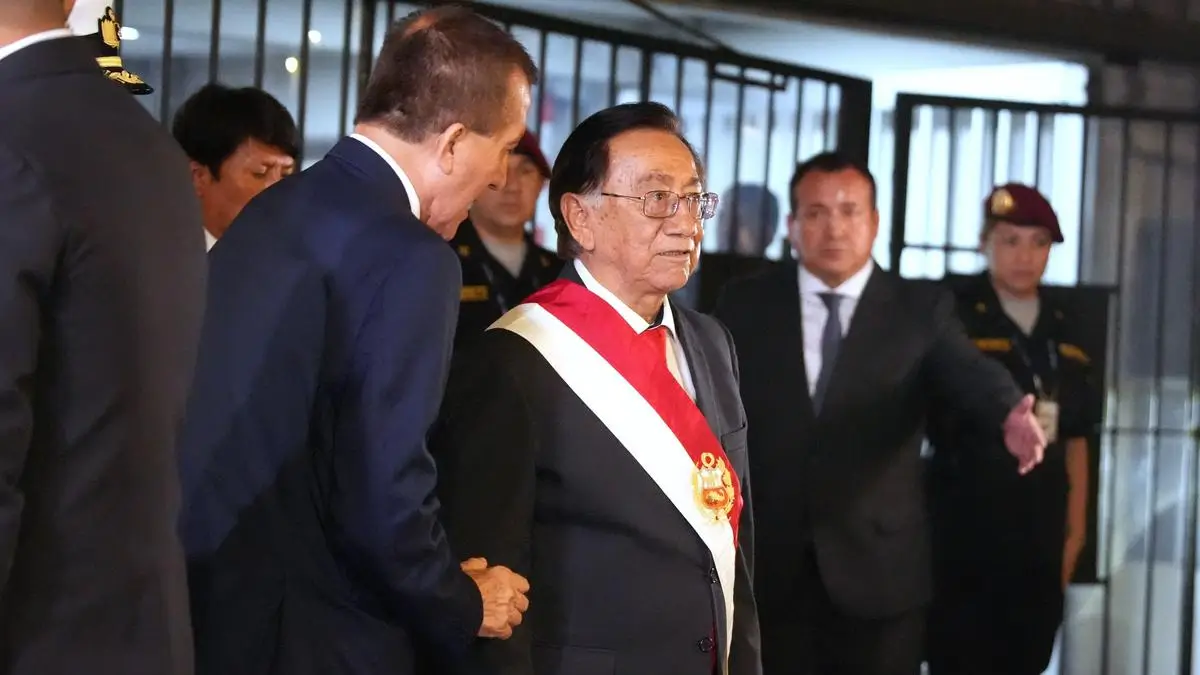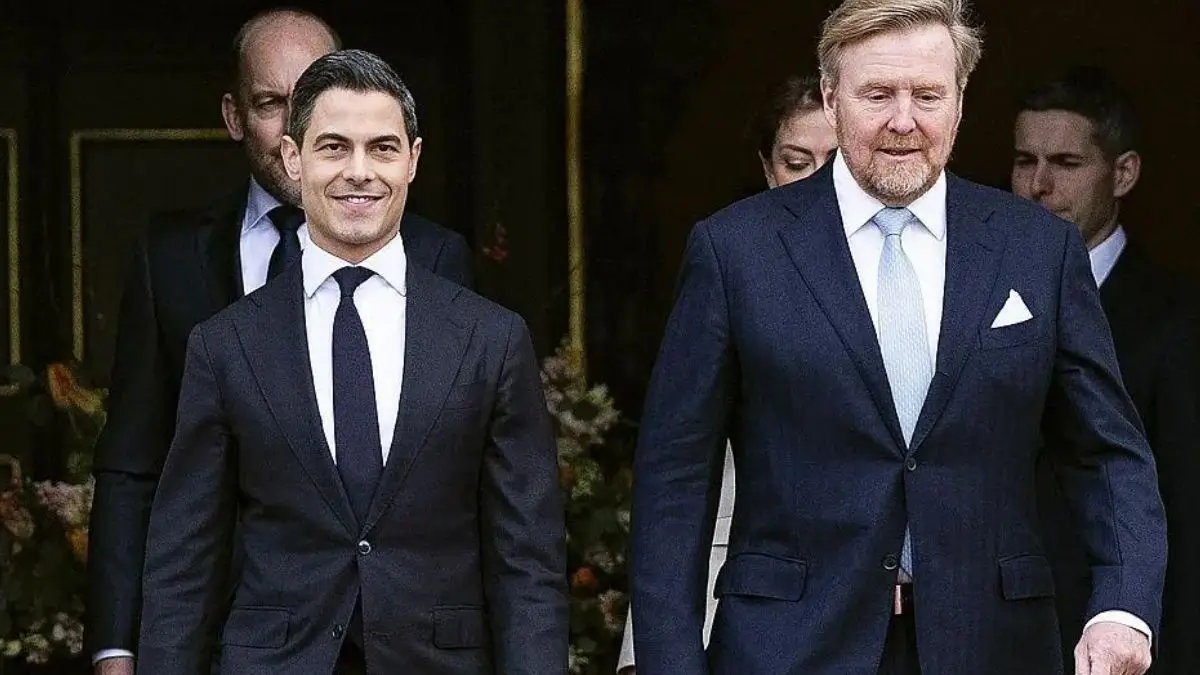India and UAE Trade Target $100 Billion Non-Oil Trade by 2030, Set up Councils to Facilitate FTA Implementation
India and the United Arab Emirates (UAE) have set ambitious targets to boost their bilateral trade. Both countries aim to achieve $100 billion in non-oil trade by the year 2030. To facilitate the implementation of a Free Trade Agreement (FTA) and enhance trade relations, they have established councils that will work towards removing trade barriers and promoting economic cooperation.
The recent development in India-UAE trade relations marks a significant milestone in the economic cooperation between the two nations. The target of $100 billion in non-oil trade by 2030 showcases the commitment of both India and the UAE to deepen their bilateral economic ties. This move holds immense importance for students preparing for government exams, as it highlights the growing significance of international trade and the need for a comprehensive understanding of global economic dynamics.
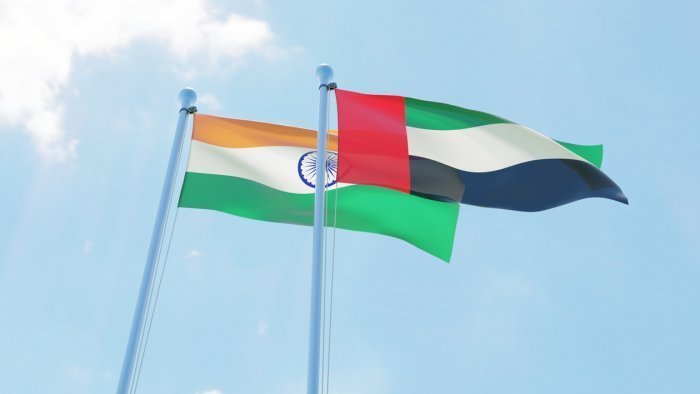
Why this News is Important:
The target of $100 billion in non-oil trade between India and the UAE by 2030 holds immense importance for the economy of both nations. It signifies the potential for increased trade opportunities, job creation, and enhanced economic growth. This news is crucial for students preparing for government exams as it highlights the significance of trade policies, bilateral relations, and the impact of international trade on various sectors.
The establishment of councils to facilitate FTA implementation reflects the commitment of both countries to strengthen their international partnerships. By removing trade barriers and promoting economic cooperation, India and the UAE aim to create a conducive environment for businesses to thrive. This news is important for students as it emphasizes the need to understand the dynamics of international trade and the role of strategic alliances in fostering economic growth.
The commitment to achieving $100 billion in non-oil trade by 2030 reflects the desire of both India and the UAE to strengthen their bilateral relations. Trade acts as a catalyst for diplomatic ties and cultural exchanges between nations. This news is significant for students preparing for civil service exams, as it exemplifies the importance of fostering international relations, diplomacy, and the role of economic cooperation in global politics.
The target of $100 billion in non-oil trade opens up new avenues for trade and investment between India and the UAE. It encourages entrepreneurs and businesses to explore diverse sectors and seize opportunities in emerging markets. This news is important for students as it highlights the need to stay updated with evolving trade policies, market trends, and investment opportunities. Understanding the potential of international trade and its impact on various sectors is essential for aspirants preparing for government exams related to economics, commerce, and international relations.
Historical Context:
India and the UAE have a long history of trade relations, dating back several centuries. The UAE has been one of India’s top trading partners in the Middle East region. Over the years, both countries have engaged in various trade agreements and collaborations to promote bilateral trade and investment. The establishment of the India-UAE High-Level Task Force in 2015 was a significant step towards enhancing economic cooperation. This historical context is crucial for students to comprehend the foundation and evolution of India-UAE trade relations.
Key Takeaways from “India and UAE Target $100 Billion Non-Oil Trade by 2030, Set up Councils to Facilitate FTA Implementation”:
| Serial Number | Key Takeaway |
|---|---|
| 1. | India and the UAE aim to achieve $100 billion in non-oil trade by 2030. |
| 2. | Councils have been established to facilitate the implementation of a Free Trade Agreement (FTA) between India and the UAE. |
| 3. | The initiative aims to remove trade barriers and promote economic cooperation between the two countries. |
| 4. | India and the UAE have a long history of trade relations, and this move further strengthens their economic ties. |
| 5. | Students preparing for government exams should be aware of the growing significance of international trade and its impact on the Indian economy. |
Conclusion:
In conclusion, the news of India and the UAE targeting $100 billion in non-oil trade by 2030 and establishing councils to facilitate FTA implementation holds great importance for students preparing for government exams. It highlights the significance of international trade, economic cooperation, and bilateral relations between nations. By understanding the historical context, key takeaways, and the importance of this news, students can enhance their knowledge and analytical skills in areas such as economics, commerce, international relations, and current affairs.
Important FAQs for Students from this News
Q: What is the significance of the $100 billion non-oil trade target between India and the UAE?
A: The $100 billion non-oil trade target signifies the commitment of both countries to strengthen their bilateral economic ties and explore new avenues for trade and investment. It presents opportunities for economic growth, job creation, and enhanced international partnerships.
Q: What are the councils established to facilitate FTA implementation?
A: The councils are established to remove trade barriers and promote economic cooperation between India and the UAE. They will work towards implementing the Free Trade Agreement (FTA) and enhancing bilateral trade relations.
Q: How does this news impact students preparing for government exams?
A: This news is important for students as it highlights the growing significance of international trade, the dynamics of economic cooperation, and the need to understand trade policies, bilateral relations, and their impact on various sectors.
Q: What is the historical context of India-UAE trade relations?
A: India and the UAE have a long history of trade relations, which gained momentum with the discovery of oil reserves in the UAE. Over time, both countries have recognized the potential for diversifying their trade beyond oil and establishing a more balanced economic relationship.
Q: What are the key takeaways from this news?
A: The key takeaways include the target of $100 billion in non-oil trade, the establishment of councils for FTA implementation, the aim to remove trade barriers, the strengthening of India-UAE bilateral relations, and the importance of understanding international trade for government exams.
Some Important Current Affairs Links





